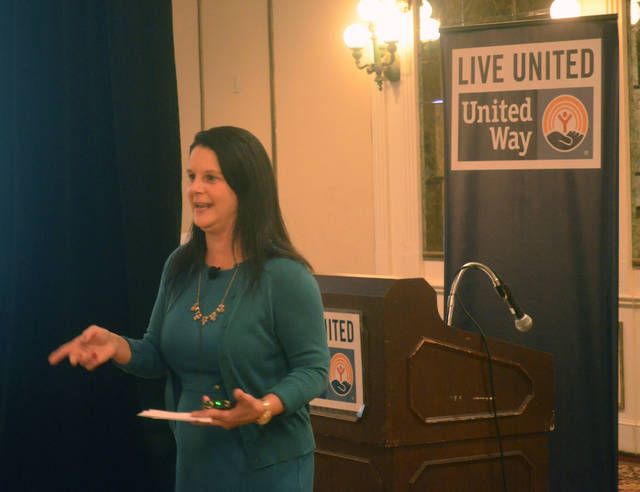Click here to subscribe today or Login.
WILKES-BARRE — You might think getting a tyke to sit with a sweet-smelling, puffy marshmallow for 15 minutes before eating it would be simple lesson in delayed gratification. But it turns out if a 4-year-old resists the temptation, it can change him or her for life.
“By middle school, the ones who ate the marshmallow had shorter fuses,” Lisa Murray told a crowd of 170 educators gathered for the “Early Childhood Transition Summit” on Friday morning at the Genetti Hotel & Conference Center. “At age 18, they looked at SAT scores, and those who didn’t eat the marshmallow averaged 210 points higher than those who ate the marshmallow.”
Murray, a former special education teacher turned trainer and speaker, used the famous “marshmallow experiment” first conducted at Stanford University to punctuate a keynote speech about the importance of fostering “emotional intelligence” in children at an early age.
Murray showed a video of a version of the experiment where a child was left alone in a room with a marshmallow on the table. They were told they could eat the marshmallow immediately, or wait and the adult would return with a second one. The audience laughed at short clips of youngsters smelling, licking and picking tiny pieces off the snack as they struggled to refrain.
Encouraging delayed gratification, Murray said, is the most important lesson a pre-school student can be taught, but it is just one aspect of “emotional intelligence.”
She conceded the idea is alien and even off-putting for a generation raised in what was once the classic American family: “A dictator dad and a passive mom. The boy learns to explode, and the girl learns to stuff it.”
But emotional intelligence has become an important asset, Murray said, because people are often judged on their ability to handle situations more than they are judged on what they know. In fact, she said, a person with average intelligence can be a big success by being emotionally smart.
“It’s not about being an extrovert or an introvert. It’s about being able to lead and to connect with people.”
“There are four key emotional intelligence areas,” she noted. “Reading people, understanding emotions, managing emotions and using emotions.”
Teachers can give students lessons in emotional intelligence simply by being emotionally intelligent. “Don’t cross your arms, that’s a sign of closing off communication,” Murray said. “Don’t put hands on your hips, that says you’re the boss. And no finger pointing.”
And don’t let a child hear you say he or she is shy. “That gives them an excuse for not communicating. “
It’s important to understand “that one emotion may lead to another,” she said, citing the example of a an uncle at a family dinner asking: “So, when are you going to have another kid?”
“It may be embarrassing or irritating, but those emotions can lead to anger,” Murray said. “Anger is a secondary emotion.”
Emotional intelligence includes tolerance, assertiveness and empathy, explained Murray.
“We are born with empathy. When one baby starts crying, the others cry.”
The summit was organized by United Way of Wyoming Valley to give educators tips on helping children make the change from pre-school to grade school. United Way President and CEO Bill Jones said most of the educators attended because their schools had a teacher in-service day, meaning the students had the day off. After the keynote speech, the crowd broke into various work sessions that ran through 3 p.m.





